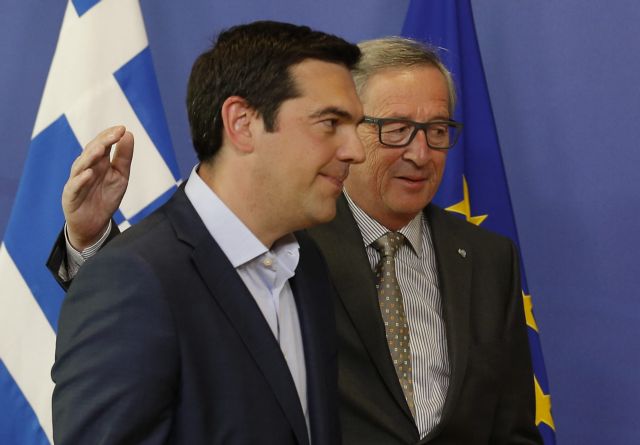The President of the European Commission Jean-Claude Juncker is to make a new intervention in an effort to help the Greek government and its creditors reach an agreement, according to a report in euro2day.gr which has been confirmed by Brussels.
Mr. Juncker is likely to contact Prime Minister Alexis Tsipras via telephone on Wednesday. The European Commission’s proposal remains on the negotiation table and Greece is expected to submit new proposals. The same sources add that if Greece agrees to a compromise proposal, then the European Commission chief will be able to convince the rest of the Eurozone members, which in turn will force the IMF to comply, or risk isolation.
According to reports, Greece avoid the VAT and pension reforms, if it accepts to increase defense cuts from 200 to 450 million euros annually, reduce supplementary pensions, tackle cartels in the market and postpone changes in collective labor agreements for a few months. If early retirements are curbed, then everything else can be resolved in the fall.
Twelve Eurogroup members are against any favorable solution to the Greek affair, which was not discussed in depth at Tuesday’s quintet meeting. The Eurogroup chief, Jeroen Dijsselbloem might make a proposal, which will be worse than the one submitted by the European Commission, however nothing has yet been decided. Many are also against an EU summit on Greece being arranged, until all technical matters are resolved.
Furthermore, EU and IMF circles claim that Greece has adopted a hard line as it expects the EU to cave in “at the last moment”, fearing a greater disturbance in the economy. This, they claim, was based on a study carried about by a legal firm in New York, which is said to specialize in managing defaults. The possibility of imposing capital controls exists, so long as the two sides are unable to reach an agreement, however it entails many difficulties. At last week’s Euro Working Group many “worst case scenarios” were examined, from a default to a Grexit.
A plan regarding the Greek public debt appears to exist, which is why the Prime Minister Alexis Tsipras has raised the issue. This plan reportedly involves a major extension of loans and lower interest rates. At present though, Greece cannot expect anything more than a repeat of the commitment to address the public debt in time, as decided at the Eurogroup in November 2012.




